Cin7 is a cloud-based inventory and order management platform designed for product-based businesses. It’s known for features like multichannel inventory sync, B2B workflows, barcode scanning, and integrations with platforms like Shopify, Amazon, and Xero.
However, Cin7 isn’t the best fit for everyone. Many growing eCommerce brands and SMBs find it:
Where Cin7 Falls Short
- Expensive starting plans, not ideal for small brands
- Complex setup and steep learning curve for non-technical users
- Feature-heavy platform that feels bloated for simple operations
- Long onboarding and implementation cycles (can take weeks or months)
- Dated and unintuitive user interface in parts of the system
- Integration sync delays with Shopify, Amazon, and accounting tools
- Lacks built-in production or shop floor management for manufacturers
If you’re facing any of these limitations, here are the 10 best Cin7 alternatives to consider, each tailored to different needs and business models.
1. Sumtracker
Sumtracker is a modern, easy-to-use inventory management platform recommended by Shopify built for multichannel eCommerce brands. It supports real-time syncing across Shopify, Amazon, Etsy, Walmart, and more making it ideal for sellers who manage bundles, kits, and multiple warehouses.
It’s especially well-suited for businesses looking for a powerful yet lightweight alternative to Cin7, without the steep learning curve or enterprise pricing.
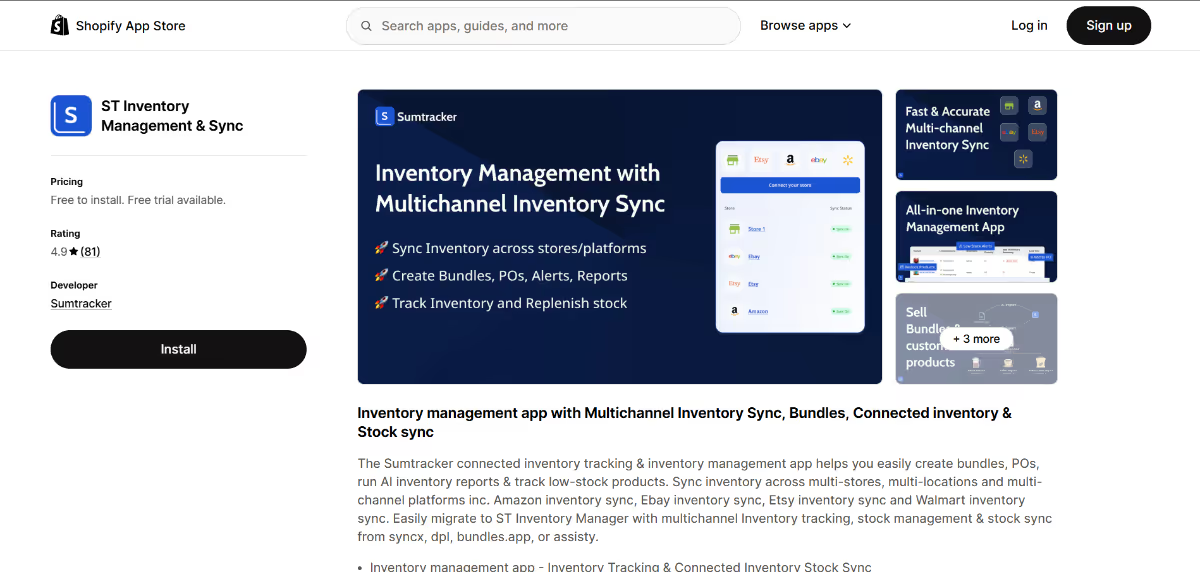
Key Features:
- Real-time inventory sync across Shopify, Amazon, Etsy, Walmart, and more
- Bundles and kit tracking with component-level logic
- Multi-location inventory visibility
- Purchase orders and stock transfers
- Custom low stock alerts and restock reports
- Public API and workflow automation support
Pros:
- Fast setup with an intuitive interface
- Supports complex bundling and component tracking
- Affordable for small to mid-sized brands
- Built specifically for fast-moving eCommerce workflows
Cons:
- Doesn’t include native manufacturing features like BOM
- Doesn’t provide production planning
Pricing: Starts at $49/month with a free trial available
Why it’s a Better Cin7 Alternative
While Cin7 can feel bloated and complex for DTC brands, Sumtracker offers the core inventory features most eCommerce sellers need in a cleaner, faster, and more affordable package. It’s perfect for brands that value multichannel sync, bundling, and a focused user experience.
2. Katana Cloud Inventory
Katana is built for manufacturers and product-making brands that need both inventory management and production control. It offers visual BOMs, raw material tracking, and shop floor visibility, making it ideal for brands selling DTC via Shopify and beyond.
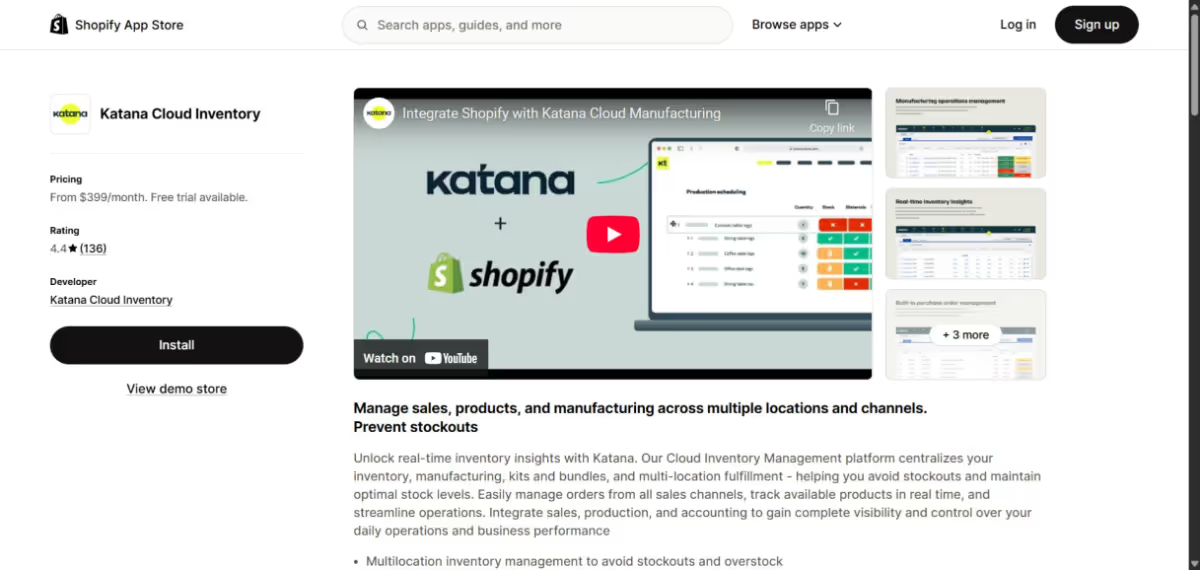
Key Features:
- Visual production planning and BOM
- Raw material and finished goods tracking
- Sales, purchase, and manufacturing orders
- Real-time inventory updates across locations
- Integrations with Shopify, Xero, QuickBooks
Pros:
- Perfect for makers and manufacturers
- Great user experience with drag-and-drop workflows
Cons:
- Expensive for small brands
- Not ideal for resellers or dropshippers
Pricing: From $349/month
Why it's a better Cin7 alternative:
Katana blends inventory and production into one clean system, while Cin7 requires workarounds or add-ons for manufacturing.
3. Zoho Inventory
Zoho Inventory is a budget-friendly tool that integrates seamlessly with the broader Zoho ecosystem. It’s well-suited for small to medium businesses managing basic stock, orders, and shipments across multiple warehouses.
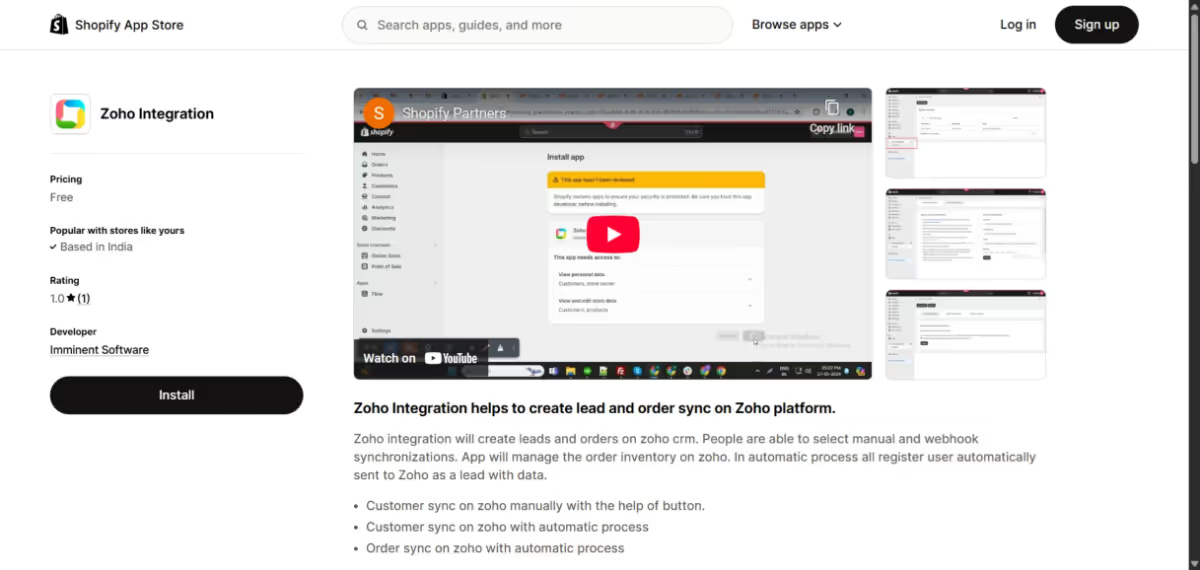
Key Features:
- Order and stock tracking
- Multi-warehouse inventory
- Sales and purchase order management
- Native Zoho ecosystem integrations
Pros:
- Affordable and accessible
- Works great with Zoho CRM, Books, and other apps
Cons:
- Less suited for high-volume eCommerce or complex bundles
- Not purpose-built for Shopify/Amazon sellers
Pricing: Free for 50 orders/month, paid plans from $29/month
Why it's a better Cin7 alternative:
If you’re already in the Zoho ecosystem, this tool gives you solid inventory management at a much lower cost than Cin7.
4. Unleashed Software
Unleashed is a robust inventory and manufacturing platform built for wholesalers and manufacturers. With features like landed cost tracking and advanced BOMs, it caters to mid-market brands with more complex product workflows.
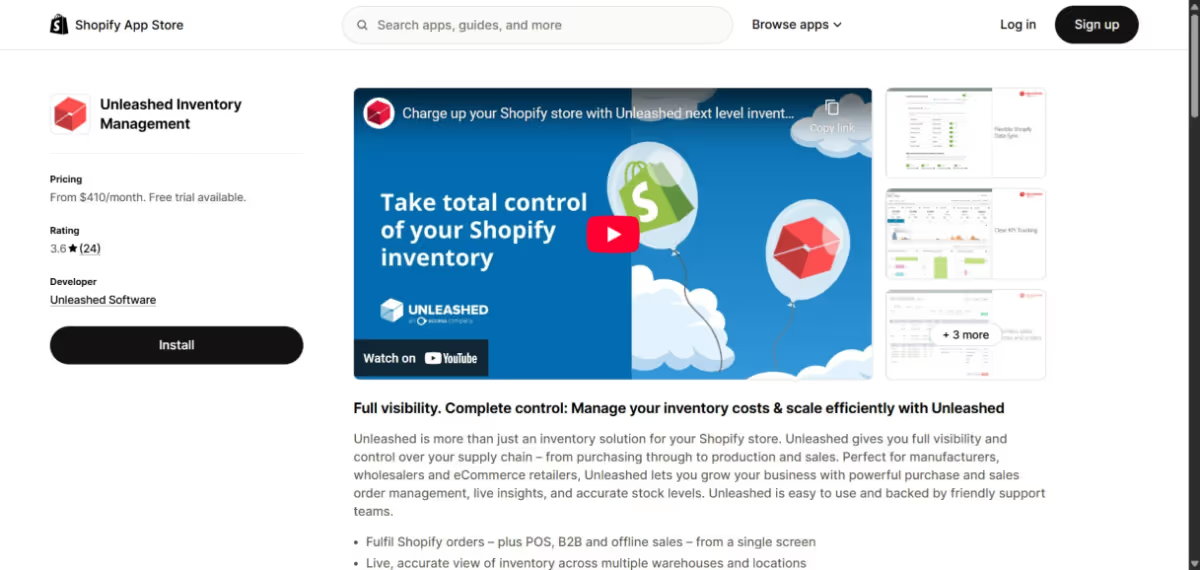
Key Features:
- Bill of materials (BOM) and batch tracking
- Landed cost and margin reports
- Multi-warehouse stock visibility
- Sales and purchase management
Pros:
- Great for advanced costing and raw material control
- ERP-style depth for manufacturers
Cons:
- Expensive and complex for smaller sellers
- Not eCommerce-first, lacks native marketplace integrations
Pricing: From $410/month
Why it's a better Cin7 alternative:
Unleashed offers deeper costing and manufacturing controls than Cin7 for mid-market product makers.
5. Finale Inventory
Finale Inventory is a warehouse-first solution known for strong barcode scanning and order fulfillment workflows. It’s ideal for high-SKU businesses that need efficient warehouse operations and serial/lot number tracking.
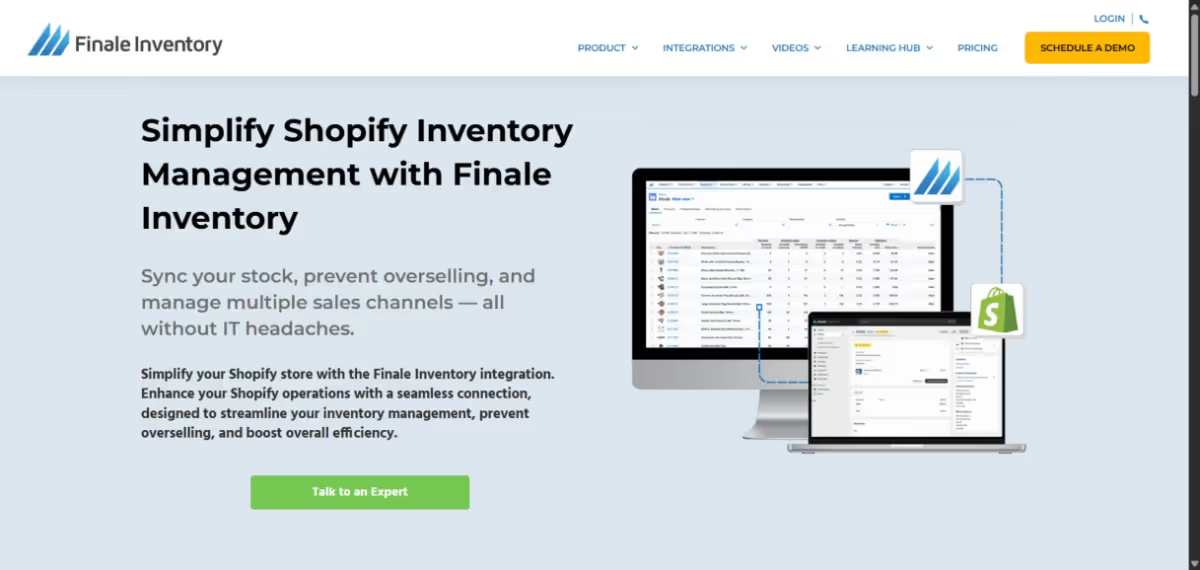
Key Features:
- Barcode scanning and mobile pick/pack
- Multi-warehouse tracking
- Lot and serial number control
- Integrations with ShipStation, Amazon, Shopify
Pros:
- Fast, accurate stock control for fulfillment teams
- Powerful barcode workflows
Cons:
- Interface feels dated
- No demand forecasting or POs auto-suggestions
Pricing: From $99/month
Why it's a better Cin7 alternative:
Finale is leaner and more warehouse-focused, ideal for brands that find Cin7’s setup too heavy or over-featured.
6. Inventory Planner by Sage
Inventory Planner focuses purely on forecasting and smart restocking. It connects with your existing inventory system to provide data-driven replenishment suggestions and planning insights that help reduce stockouts and excess inventory.
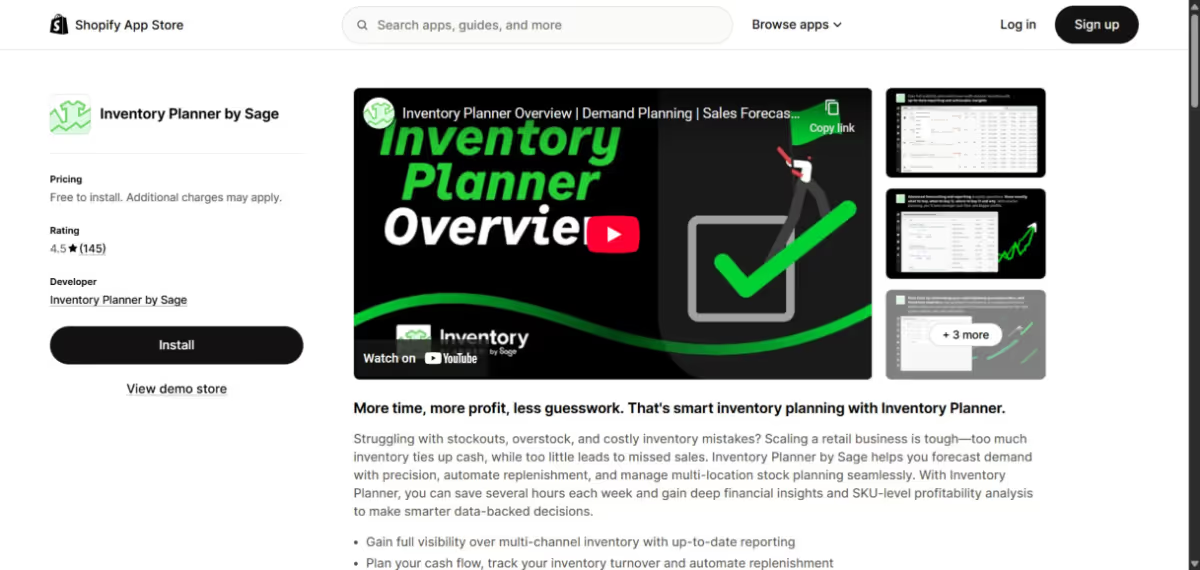
Key Features:
- Intelligent replenishment recommendations
- Forecasting based on seasonality and trends
- Open-to-buy planning
- Multi-channel sales analysis
Pros:
- Saves time on purchasing decisions
- Works with most inventory systems via integration
Cons:
- Doesn’t manage inventory directly, planning only
- Pricing based on GMV can scale fast
Pricing: Custom, based on GMV
Why it's a better Cin7 alternative:
If Cin7’s planning tools aren’t cutting it, Inventory Planner adds powerful forecasting without switching core systems.
7. Craftybase
Craftybase is built for handmade sellers and small-batch producers on platforms like Shopify and Etsy. It tracks raw materials, recipes, COGS, and compliance, making it ideal for crafters and home-based makers.
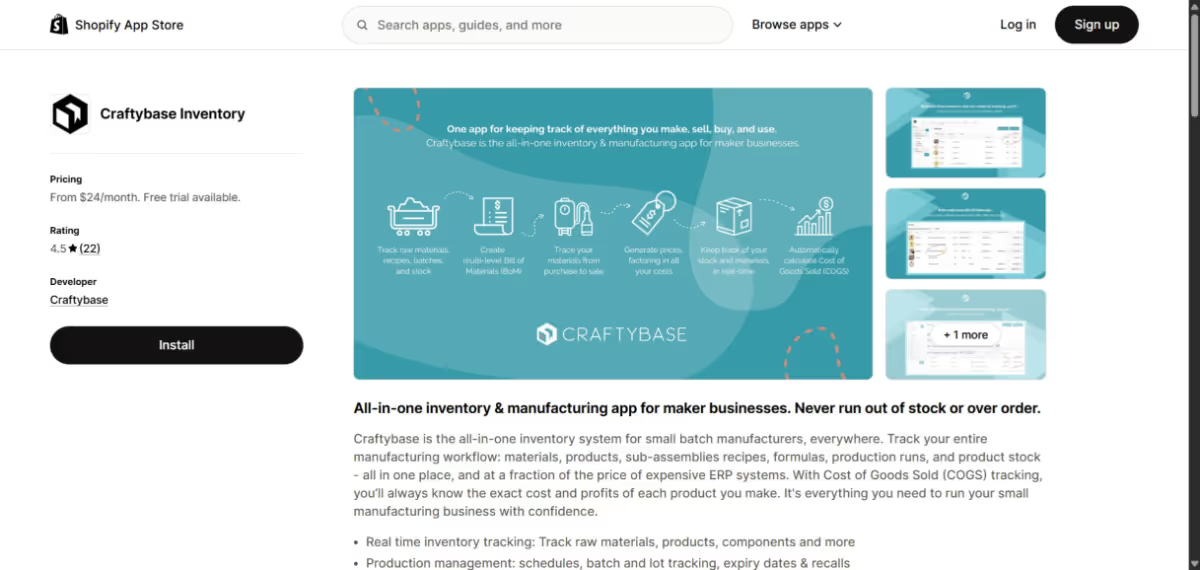
Key Features:
- Raw material and recipe tracking
- Batch and COGS reporting
- Expense and pricing management
- Etsy and Shopify integrations
Pros:
- Great for home-based makers
- Includes FDA/GMP compliance tracking
Cons:
- Not ideal for high-volume or warehouse operations
- No native Amazon or Walmart support
Pricing: From $24/month
Why it's a better Cin7 alternative:
Craftybase focuses on the unique needs of makers and handmade businesses, while Cin7 is more wholesale/retail focused.
8. NetSuite ERP
NetSuite is a full-fledged ERP platform designed for enterprises and fast-scaling businesses. It offers end-to-end visibility across inventory, accounting, CRM, and more, all in one highly customizable system.
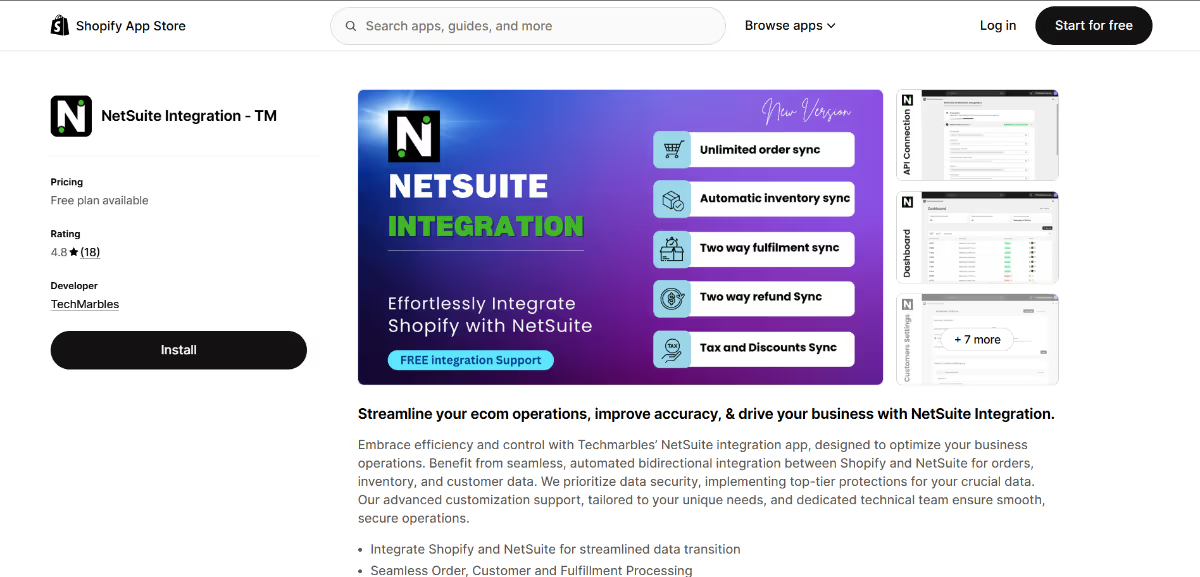
Key Features:
- Complete ERP suite with accounting, inventory, CRM
- Advanced procurement and warehouse management
- Multi-subsidiary and global compliance support
- Custom workflows and reporting
Pros:
- Enterprise-level control
- Great for global, high-scale operations
Cons:
- Expensive and complex
- Overkill for SMBs
Pricing: Custom, typically starts around $999/month
Why it's a better Cin7 alternative:
If you’ve outgrown Cin7’s limits, NetSuite gives you total business control in one system.
9. Cogsy
Cogsy is a planning and forecasting tool tailored f
r DTC brands that prioritize margin and growth. It helps you generate smart POs, manage cash flow, and forecast demand without handling the operational side of inventory.
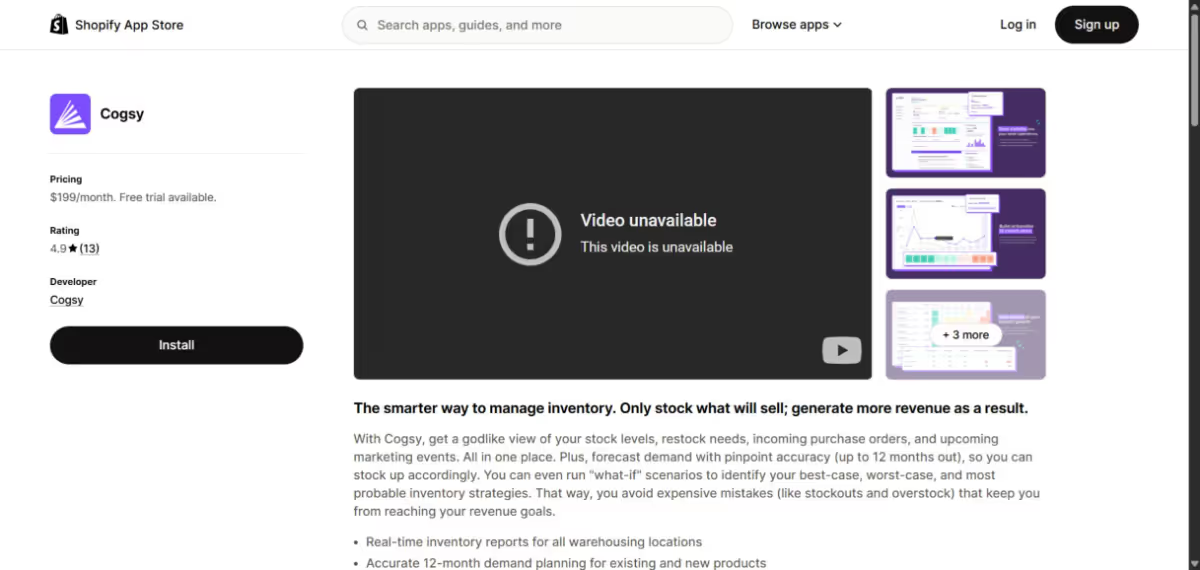
Key Features:
- Forecasting based on margin and sell-through
- Actionable restock and PO suggestions
- Scenario planning and cash flow insights
- Works with Shopify, Amazon, and ERPs
Pros:
- Profit-first inventory planning
- Lightweight, visual, and clear
Cons:
- Doesn’t manage stock or orders directly
- Custom pricing can be costly for small brands
Pricing: Custom pricing
Why it's a better Cin7 alternative:
Cogsy is perfect if you want smarter, margin-driven planning not just rigid inventory control.
10. Trunk Inventory
Trunk is a minimalistic inventory sync tool that keeps stock levels in sync across Shopify, Amazon, Etsy, and more. It’s perfect for smaller merchants who need real-time syncing and bundle support without the bulk of a full inventory system.
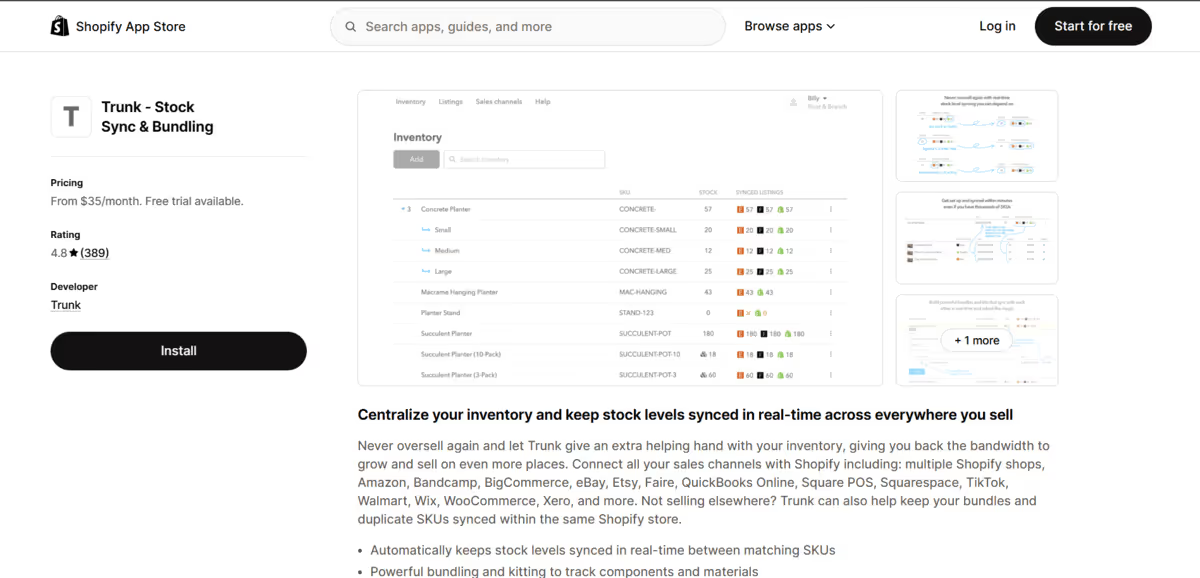
Key Features:
- Real-time multichannel stock syncing
- Bundle and component-level tracking
- Super simple UI and setup
- Works with 10+ platforms
Pros:
- Easiest to set up and use
- Ideal for micro or small sellers
Cons:
- No purchase orders or reporting
- Can’t handle high SKU complexity or warehousing
Pricing: From $35/month
Why it's a better Cin7 alternative:
If all you need is basic inventory sync, Trunk offers it without the weight or cost of Cin7.
Conclusion
Cin7 is a powerful platform, but it’s not always the best fit, especially if you’re a growing brand that values flexibility, affordability, and ease of use.
Whether you need smarter forecasting, seamless bundling, or a full ERP solution, there’s a better-suited alternative out there for your unique workflows.
If you’re a DTC or multichannel brand looking for an all-in-one inventory management system that’s built for speed, bundles, and simplicity, Sumtracker is an excellent place to start.
Ultimately, the best Cin7 alternative depends on where you are in your growth journey and where you want to go next.
Conclusion
Ready to Simplify Your Inventory Management?
Join hundreds of e-commerce merchants who rely on Sumtracker to save time, eliminate errors, and grow their business.
.svg)



.png)
.avif)